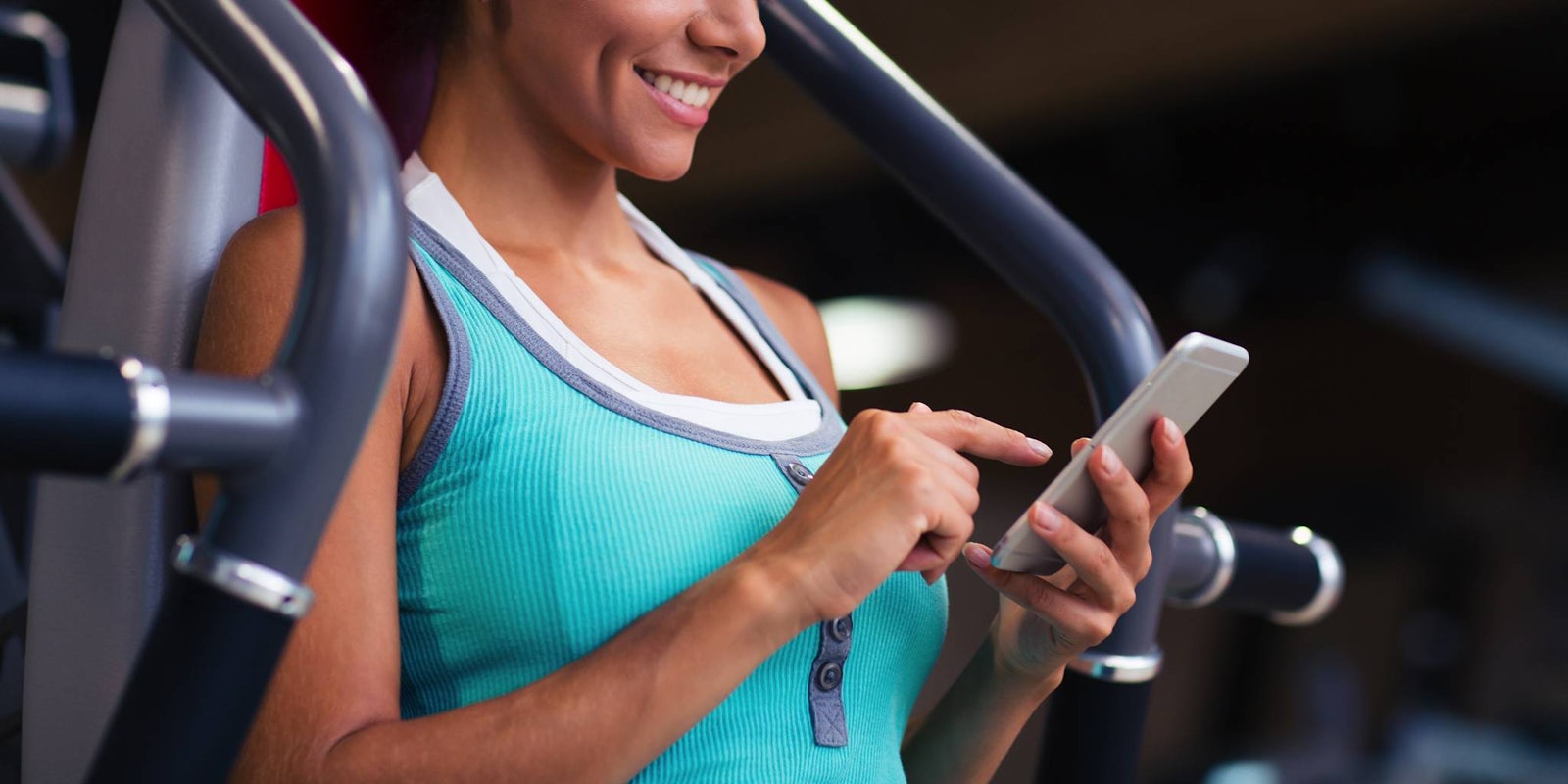Losing weight, getting exercise, quitting smoking, cutting back on alcohol—well, there are many, many apps for all of that. But a new study asks, do they work?
It seems that, yes, they do. For a short time anyway. A new paper in the Journal of the American Heart Association looked at 224 different studies that examined how different apps and wearables helped people make positive lifestyle changes. They found that across all different types of lifestyle interventions like diet, exercise, and quitting smoking and alcohol, using apps and wearables seemed to help.
In many of the diet and weight-loss studies in which participants had to use mobile- and web-based interventions (along with in-person doctor visits), patients seemed to do well in meeting their goals. The same was true in studies that aimed to get people exercising more—in particular, wearables, like pedometers, helped people get up and walk around more often.
The evidence between apps and quitting smoking wasn’t quite as strong. This is perhaps because researchers couldn’t find any studies that directly compared mobile apps with conventional interventions to help people quit smoking. But across all the studies, there was enough evidence that physicians might want to recommend using an app to help people stay off of nicotine.
Studies on alcohol were a bit dicier. Only one of the trials the researchers examined directly compared internet interventions with conventional ones. And while both groups in those studies were able to significantly cut back on excessive drinking, they didn’t see any difference between the groups.
All the studies were also limited by a few factors. Many of them only followed patients for six months, and some only followed up a few weeks after the trial began. So it’s hard to say if the patients experienced any enduring change. Additionally, all the studies were mired by low adherence rates: Patients had trouble keeping up with the intervention.
In an email with the Daily Dot, the study’s lead author, Ashkan Afshin, said that he would expect that studies that followed patients for longer would probably see these effects in greater magnitude. That means that future studies will have to come up with ways to avoid participants dropping out.
Lastly, the studies involved a mix of interventions designed by the researchers as well as interventions you might be familiar with, such as the iStepLog, Afshin said. When you combine all that customized attention with the fact that many participants also had in-person consultations to keep them on a clean path, it becomes harder to see how using something like MyFitnessPal will actually help the average person.
Nonetheless, the study is valuable, Martha Daviglus, a spokesperson for the American Heart Association who was not involved in the research, told the Daily Dot.
She said that involving their doctor with their decision to use the internet or a mobile app would help patients stay on the straight and narrow.
“But there is a large part of the population who cannot afford to go see their physicians for whatever reason—time, money, transportation,” Daviglus noted. For those patients, this study proves that turning to the web or their phones for help is better than going it alone.
Daviglus said she’s also hopeful that as technology improves, it will be easier and easier for physicians to stay in contact with their patients when they can’t make it to the office.
In other words, whether you’re trying to stick with kickboxing or trying to kick a bad habit, try using an app. It just might help.
